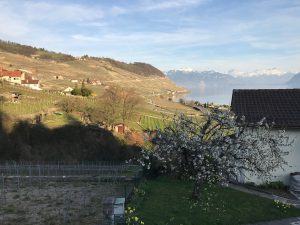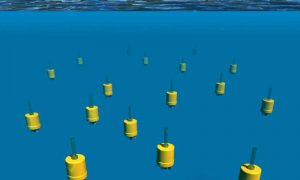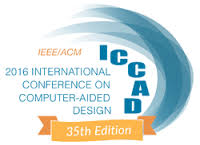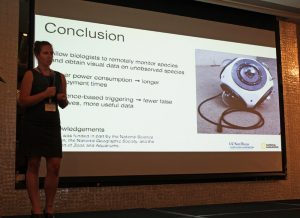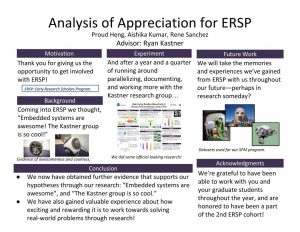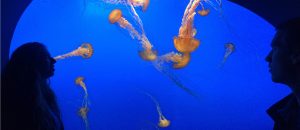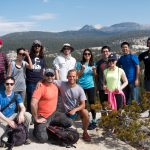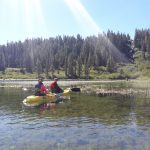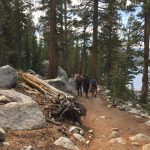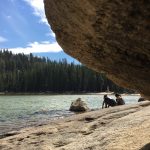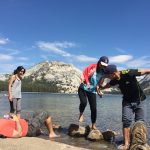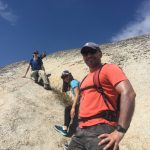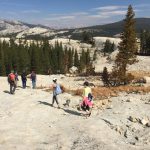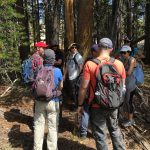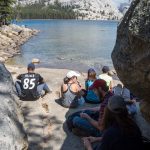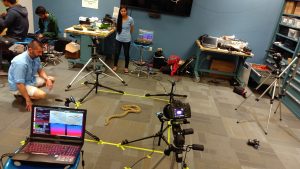 Bernard Palissy was a 16th century French ceramicist known for making large decorative platters from the casts of animals (reptiles, fish, crustaceans, etc.). As part of their class project for CSE 145, Erica Sugimoto & Christopher Chinowth, along with their mentor staff Eric Lo, are recreating his artistic process, but with a modern spin. Instead of using dead animals as a mold, they are using Intel RealSense depth cameras to capture a 3D model of a live animal. This model will then be used by artist Miljohn Ruperto to create a modern version of Palissy ware. This artwork is scheduled to be displayed in the Haus der Kulturen der Welt (House of World Cultures) in Berlin, Germany within the next year.
Bernard Palissy was a 16th century French ceramicist known for making large decorative platters from the casts of animals (reptiles, fish, crustaceans, etc.). As part of their class project for CSE 145, Erica Sugimoto & Christopher Chinowth, along with their mentor staff Eric Lo, are recreating his artistic process, but with a modern spin. Instead of using dead animals as a mold, they are using Intel RealSense depth cameras to capture a 3D model of a live animal. This model will then be used by artist Miljohn Ruperto to create a modern version of Palissy ware. This artwork is scheduled to be displayed in the Haus der Kulturen der Welt (House of World Cultures) in Berlin, Germany within the next year.
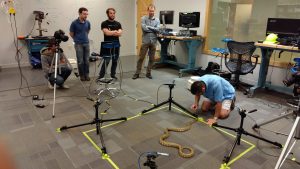 The first try at capturing the data happened today. We have the cameras and the 3d data capture software ready, we just needed a subject. For that, we enlisted “snake wrangler” Josh Ruffell who brought in three large (4-5 ft) Florida King Snakes. The second of the snakes, who goes by the name “Florida King Snake #2
The first try at capturing the data happened today. We have the cameras and the 3d data capture software ready, we just needed a subject. For that, we enlisted “snake wrangler” Josh Ruffell who brought in three large (4-5 ft) Florida King Snakes. The second of the snakes, who goes by the name “Florida King Snake #2
“, made for the best model. Erica and Chris have a few more weeks before the end of the quarter to post-process the data, and determine the best models for Miljohn.
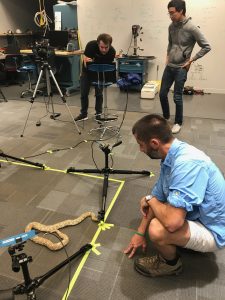 More information can be found in a slideshow developed by Eric and Chris presented earlier this quarter as part of their CSE 145 class project overview (Palissy Snake Project Overview) or their class project webpage (Palissy Snake Homepage).
More information can be found in a slideshow developed by Eric and Chris presented earlier this quarter as part of their CSE 145 class project overview (Palissy Snake Project Overview) or their class project webpage (Palissy Snake Homepage).
The class has 12 other projects. To learn about those, check out the Class Project Webpage.
Special thanks to Intel (in particular Byron Gillespie) for providing the RealSense Cameras.
